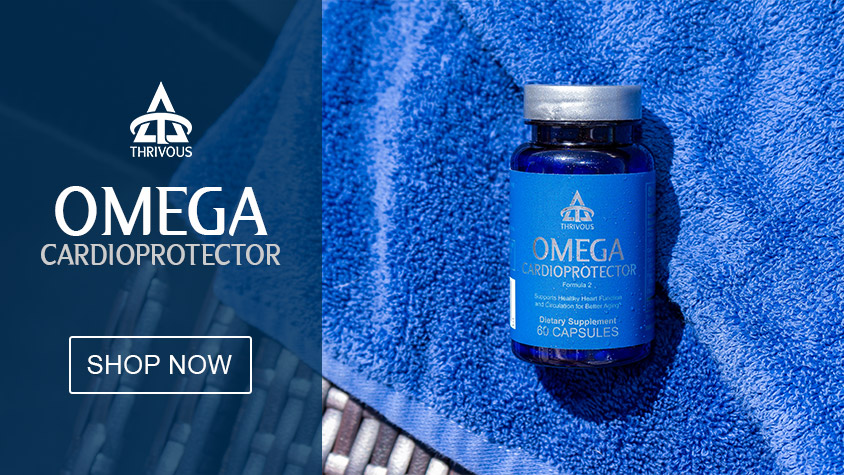New Studies on Benefits of Caffeine and Low-Dose Omega 3

Caffeine and Omega 3 are hot topics in research. Because many benefits have been identified, research is now focused on identifying when and how to use the supplements to maximize health and enhance brain and muscle performance.
Caffeine May Enhance Anaerobic Performance
This study explored the benefits of caffeine for combat sport athletes. These events require high levels of isometric handgrip strength and muscular endurance in the upper and lower extremities.
Eight men, age 20-24, who were on a national boxing team, took a placebo or 6 mg caffeine per kg body weight before completing a series of tests. Tests included lactate levels, handgrip and counter-movement jump, Wingate test, and electromiography of various muscles. Electromiography measures the electrical activity between nerves and muscles, and was used here to calculate neuromuscular efficiency.
The researchers found that, after caffeine consumption, the athletes experienced enhanced peak power, enhanced mean power, reduced time to reach peak power, and improved jump height. Caffeine also improved neuromuscular efficiency at peak power in the vastus lateralis and gluteus maximus, and improved mean power in the vastus lateralis and tibialis anterior.
Many studies have established that caffeine enhances cognitive skills and aerobic performance. Expanding on those results, here, the researchers concluded that “caffeine supplementation improved anaerobic performance without affecting EMG activity and fatigue levels in the lower limbs.”
Caffeine May Enhance Mood
This study focused on differentiating between the effects of caffeine and the effects of the other compounds in coffee.
Seventy participants, who had not had coffee or caffeinated substances for the previous 48 hours, completed a series of tests for a baseline. Then, they received either regular coffee (50 mg caffeine) or decaffeinated coffee (2 mg caffeine) thirty minutes before repeating the series of tests. The tests included measurement of reaction time, mood, and skeletal (hand) muscle strength.
Note that the participants in this study likely received less than 2 mg caffeine per kg body weight. This is less than the 2.5-5 mg caffeine per kg bodyweight that we often see in caffeine studies.
Neither group showed improvement in hand strength but both groups experienced improvement in reaction time and mood. When the groups were compared, the group that received the regular coffee had a significantly greater improvement in mood when compared to the group that received decaffeinated coffee.
Low-Dose Omega 3 May Provide Some Benefits
While many studies have documented benefits of omega-3 supplements, this study was focused on identifying potential benefits to low dose supplementation of omega-3s and vitamin D.
84 people, age 50-60 years in Lithuania, received a placebo or a supplement containing 330 mg omega 3 and 200 IU vitamin D3 for 16 weeks.
Note that omega 3 supplements typically contain 25-30% of the fish oil as omega 3. So a 1 gram fish oil softgel is likely to contain about 330 mg omega 3. Some companies concentrate their fish oil to have a higher proportion of omega 3. The researchers in this study pointed out that this is below the amount recommended by multiple health agencies to prevent heart disease.
The RDA of vitamin D for the age range of the participants is 600 IU. The vitamin D supplement provided here was about 30% of their RDA, which is not a therapeutic dose. Lithuania has a high rate of vitamin D deficiency. Vitamin D deficiency is also more common during the winter months when the skin is not exposed to summer sun rays. This study was started during the winter in Lithuania.
The blood levels of vitamin D increased in both groups. The authors pointed out that the study ended in the summertime, when vitamin D production from sun exposure naturally increases. BMI also decreased in both groups.
There were some improvements in total cholesterol, carbohydrate metabolism and respiratory function with supplementation. In the omega 3 group, total cholesterol decreased, blood glucose level decreased, VO2 max increased, and forced vital capacity increased. There were no significant changes in HDL, LDL, or triglyceride levels.
My experience as a dietitian is that many people take 1 g of fish oil, similar to the one described in this study. While there are some benefits to this dose, it may not provide all of the heart protection that people are anticipating.
Thrivous
Thrivous developed Surge Acute Nootropic to enhance energy, focus, and productivity. Each capsule provides 100 mg Caffeine. This dose is sufficient to provide cognitive and physical performance enhancement for most people. Surge also delivers clinical doses of L Theanine and Panax Ginseng, to expand the benefits and mitigate the side effects of Caffeine.
Thrivous developed Omega Cardioprotector to support healthy heart function for better aging. Each serving provides a clinical dose of concentrated fish oil powder, to support healthy triglyceride. Each serving also provides clinical doses of Garlic extract and French Maritime Pine Bark Extract, to support healthy cholesterol and circulation.
Each nutrient and each dose in all Thrivous supplements is based on multiple human studies. And all Thrivous supplements are completely open source, with all quality control documentation published on the website. These are exceptional practices in the industry. They are part of Thrivous' commitment to help you access technology with the greatest potential to improve your brain and body.
More Articles
Don't fall behind! Thrivous monitors new human studies of nootropic and geroprotector supplements, so you can make the best decisions based on the latest science. Supplement Science Updates are part of the free Thrivous newsletter. Subscribe now to receive email about human enhancement, nootropics, and geroprotectors, as well as company news and deals.
Read more articles at Thrivous, the human enhancement company. You can browse recent articles in Thrivous Views. See other Supplement Science Update articles. Or check out an article below.
-
Beware Fake Coronavirus News
The coronavirus is spreading but also mutating along the way. MIT Technology Review is running a story on how scientists ...
-
The Internet of Neuro-Electronics
An international team of scientists has created a hybrid neural network of biological and artificial neurons. The scientists have shown that ...



